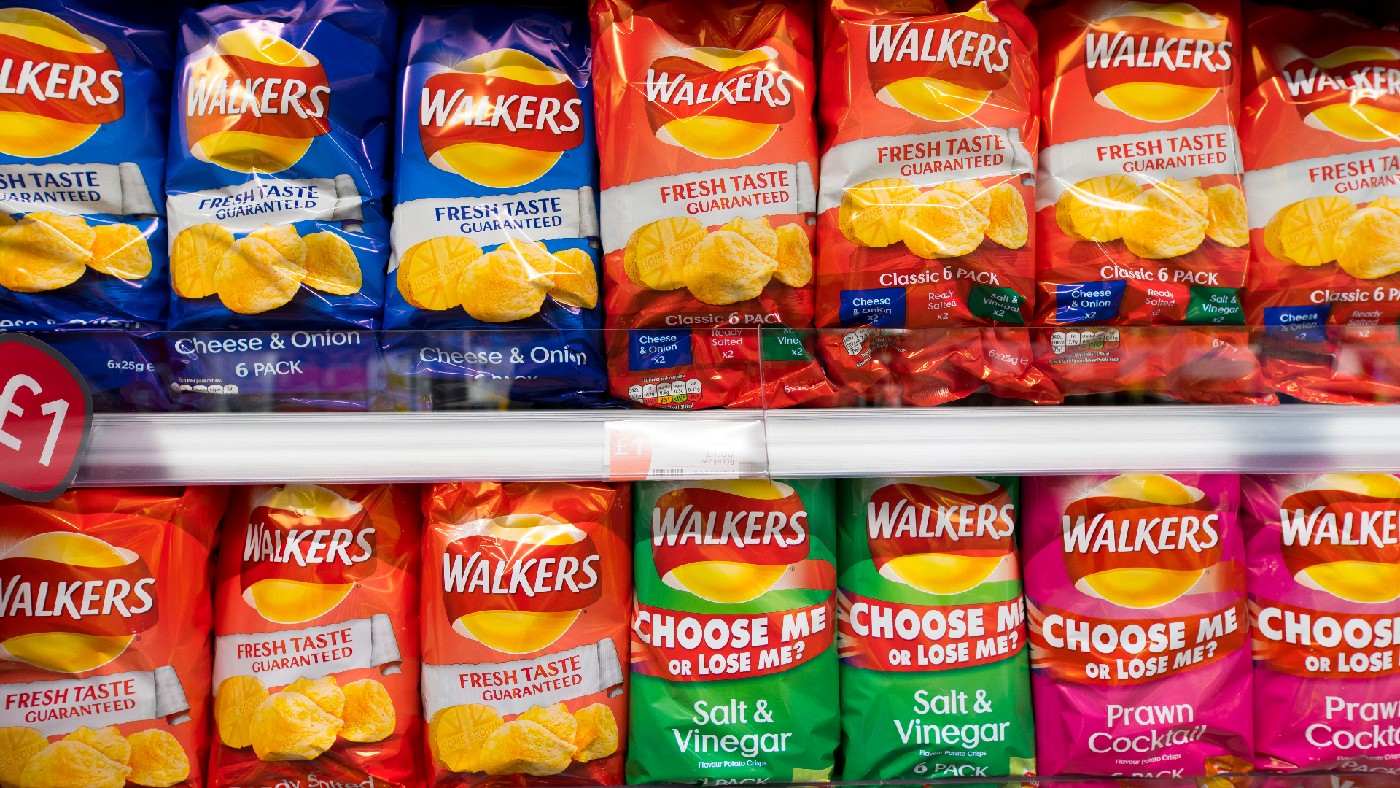Tata Steel strikes £550m deal to solve pensions riddle
Agreement will clear path for company to merge UK assets with ThyssenKrupp of Germany

A free daily email with the biggest news stories of the day – and the best features from TheWeek.com
You are now subscribed
Your newsletter sign-up was successful
Steel crisis: Government must do more to secure sale, says Tata
28 April
Tata Steel has said the help it has received from the government as it tries to find a buyer for its threatened plants has not been adequate.
The Week
Escape your echo chamber. Get the facts behind the news, plus analysis from multiple perspectives.

Sign up for The Week's Free Newsletters
From our morning news briefing to a weekly Good News Newsletter, get the best of The Week delivered directly to your inbox.
From our morning news briefing to a weekly Good News Newsletter, get the best of The Week delivered directly to your inbox.
Giving evidence to the business, innovation and skills select committee, UK chief executive Bimlendra Jha told MPs the firm has not set a deadline for disposing of its British works but said Tata "cannot continue to bleed [money]" at the sites.
The businessman said a sale would not happen unless the pension fund deficit was addressed, says the BBC. The Guardian says Tata has been "pumping" more than £100m a year into the scheme to fund its £15bn liabilities.
The scheme could now enter the state-backed Pension Protection Fund, adds the newspaper.
Jha also warned against putting off dealing with the pension liabilities, saying: "If we don't solve it, we are staring at some very bad consequences for the taxpayer. We are staring at a huge economic and social disaster."
A free daily email with the biggest news stories of the day – and the best features from TheWeek.com
It was not "acceptable" to sell the plants piecemeal, he said, but warned there remained serious questions about the viability of the largest operation, Port Talbot.
MPs were also told that Tata’s failure to make a profit was due to "structural weaknesses" in the UK, including high energy costs and business rates.
"If we were at the same electricity costs as Germany, then [we] would be £40m better off - we would not be having negative numbers," Jha said. It is thought the UK operations are losing around £1m a day.
Jha went on to say that Tata had not ruled out keeping its UK operations if they could be made profitable. "We would not be selling the business if we were not losing money," he added.
Around 40,000 jobs, including those in support industries, are at risk if Tata Steel UK closes.
Port Talbot boss to launch management buyout of steelworks
20 April
One of Tata Steel's most senior UK staff, Stuart Wilkie, is putting together a management buyout of the company's Port Talbot works.
Wilkie is seeking funding from private investors and the government. It is also believed the bid involves Tata employees investing. They have not been consulted on the idea yet, but are said by ITV to be "nervous".
However, the plan was welcomed by the Community steel union, which said it wanted "prompt discussions with Stuart Wilkie and any management buyout option".
The Port Talbot boss will formally announce his intentions today, but it is thought the buyout needs a cash injection of £100m and would " in theory see the works turning a £200 million in losses a year into a £100 millon over two years", says ITV.
According to the BBC, the plan will involve retaining the plant's blast furnaces and making steel "from scratch", rather than turning it into a facility to recycle the metal, as suggested by another possible buyer, Sanjeev Gupta.
Welsh business expert Dr Kath Ringwald told the broadcaster that Gupta's plan talked of making "no redundancies" and says it remains to be seen whether Wilkie would proceed on a similar basis.
Around 15,000 people are directly employed in Tata Steel's UK operations, which include Rotherham, Corby, Shotton and Port Talbot. Thousands more jobs are at risk in firms with ancillary roles in the industry.
Indian owners Tata are selling their entire UK business, which is losing around £1m a day, as the steel industry flounders worldwide, with some blaming China for dumping state-subsidised steel on the market.
Wilkie, the managing director of Tata Strip Products UK, was one of the main people behind a proposed survival package rejected by the company. His buyout proposals are said to be based on this turnaround plan.
Steel crisis: Brussels meeting ends without progress
19 April
A summit of the world's steel-producing nations in Brussels has ended without any progress towards easing a global oversupply which has lowered prices, jeopardising the future of the industry in the UK and elsewhere.
Trade ministers and other stakeholders representing 94 per cent of the world's steel output gathered in Belgium yesterday but failed to take any detailed action, reports The Guardian.
The lack of progress was criticised by UK lobby group, UK Steel.
"What we needed to see at today's meeting was an agreement by national governments to take short-term, detailed actions to help address the steel sector crisis," said director Gareth Stace.
"However, having agreed what the problems are, we appear to be no closer to finding international action to put in place solutions."
Robert Holleyman, the US deputy trade representative, said: "We are encouraged by the start of the discussions but we fully believe more must be done and more must be done urgently."
He added that the talks should not be seen as an academic exercise but as "dealing with real pain, with real people".
European and other steel producers have blamed China for the crisis, saying it is dumping state-subsidised steel too cheaply on the world market. It had been hoped the country would promise to rein-in production so its rivals could compete.
But Chinese delegates rejected the claim yesterday, saying the US and EU were also over-producing. They blamed the 2008 economic downturn and subsequent falling global demand for the oversupply.
State news agency Xinhua, which is usually taken to reflect the views of the country's leaders, said it was "lame and lazy" to blame China.
Despite this, Beijing promised in February to cut production by 100-150 million tonnes and lay off 500,000 steel workers over the next five years, says The Guardian.
Steel crisis: 'Many tens' of bidders, but total rescue 'remote'
14 April
There is good news and bad news for the 11,000 steelworkers left in Tata Steel's UK business, according to today's headlines.On the one hand, Tata's Indian parent company has confirmed there is more than just the one party interested in buying the stricken assets. In fact, there have been "many tens" of expressions of interest.But on the other hand, figures close to the sale process said that most of these are for bits of the company and that the chances of a deal to rescue the whole operation in one piece are "remote"."There has been a lot of people who have expressed interest… I don't want to give a number, but it is in tens, many tens actually," said Koushik Chatterjee, the group executive director of Tata Steel, reports The Guardian.But the paper quotes sources as saying buyers are "interested in bits" and are especially wary of taking on the Port Talbot blast furnace in South Wales.Liberty House, the only publicly confirmed interested party, has said any deal would have to involve turning the site into an arc furnace that produces steel from locally available scrap. However, there are suggestions that Tata does not see the company as credible or with enough resources to meet the estimated £2bn costs of this change.Instead, those who spoke to The Guardian indicated that the only buyer who could take on the sites as one and make the requisite investment is German conglomerate ThyssenKrupp. The company reportedly had been interested in buying Tata's UK assets, along with its wider European business, but walked away over the mounting losses at Port Talbot. Reuters says a merger of the wider European businesses is still on the cards.To get the UK business to a saleable position will probably mean government support, perhaps in the form of low-interest loans to fund investment plans and almost certainly the removal of pension scheme liabilities.
The British Steel pension funds are said to be £14bn in deficit but well-funded, thanks to Tata pumping in £100m a year. Prospective buyers are likely to want a government bailout, at a cost of £2bn, to ease that burden.
-
 How to Get to Heaven from Belfast: a ‘highly entertaining ride’
How to Get to Heaven from Belfast: a ‘highly entertaining ride’The Week Recommends Mystery-comedy from the creator of Derry Girls should be ‘your new binge-watch’
-
 The 8 best TV shows of the 1960s
The 8 best TV shows of the 1960sThe standout shows of this decade take viewers from outer space to the Wild West
-
 Microdramas are booming
Microdramas are boomingUnder the radar Scroll to watch a whole movie
-
 Can the UK avoid the Trump tariff bombshell?
Can the UK avoid the Trump tariff bombshell?Today's Big Question President says UK is 'way out of line' but it may still escape worst of US trade levies
-
 Five years on, can Labour's reset fix Brexit?
Five years on, can Labour's reset fix Brexit?Today's Big Question Keir Starmer's revised deal could end up a 'messy' compromise that 'fails to satisfy anyone'
-
 Why au pairs might become a thing of the past
Why au pairs might become a thing of the pastUnder The Radar Brexit and wage ruling are threatening the 'mutually beneficial arrangement'
-
 Brexit: where we are four years on
Brexit: where we are four years onThe Explainer Questions around immigration, trade and Northern Ireland remain as 'divisive as ever'
-
 Is it time for Britons to accept they are poorer?
Is it time for Britons to accept they are poorer?Today's Big Question Remark from Bank of England’s Huw Pill condemned as ‘tin-eared’
-
 Is Brexit to blame for the current financial crisis?
Is Brexit to blame for the current financial crisis?Talking Point Some economists say leaving the EU is behind Britain’s worsening finances but others question the data
-
 How Brexit handed a ‘financial boon’ to former Soviet state Estonia
How Brexit handed a ‘financial boon’ to former Soviet state EstoniaIn Depth Around 4,000 companies have set up shop in member state since UK left EU, prime minister says
-
 Why the UK is suffering a Walkers crisps shortage
Why the UK is suffering a Walkers crisps shortagefeature Production issues have forced snack giant to prioritise most popular varieties